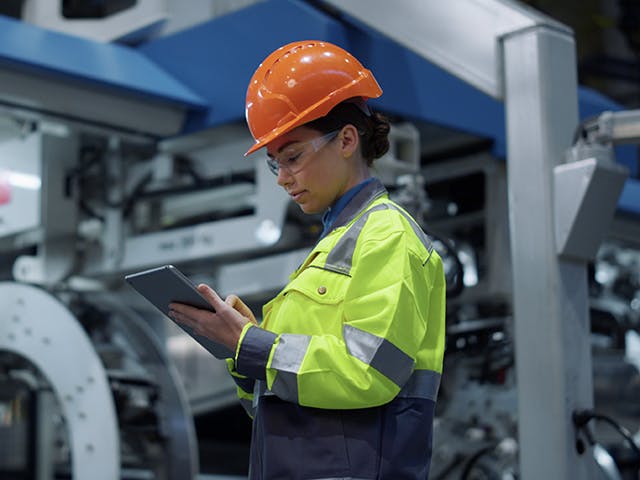
Shop floor control
Shop floor control is a set of software and tools that manages production orders, tracks progress, optimizes resource usage, mitigates risks, and enhances efficiency through real-time data monitoring and automation.
What is shop floor control?
Shop floor control comprises the methods and systems to prioritize, track and report against production orders and schedules. It includes the procedures to evaluate current resource status, labor, machine usage, and other information required to support the overall planning, scheduling, and costing systems related to shop floor operation.
Shop floor control calculates work based on a percentage of completion for each order and operation, and is useful for inventory valuations and materials planning. It also includes identifying and assessing vulnerabilities and risks due to the shop-floor environment, employees, processes, and the technologies employed at the shop-floor level.
Based on the assessment of these factors, shop floor control initiates measures to keep risk at an acceptable minimum level. Shop floor control is responsible for the detailed management of activities and the flow of materials inside the plant. It includes employees, materials, machines and production time.
Shop floor control activity begins after planning (e.g., with MRP, ERP); once planned, orders and purchase requisitions get created.
Related product: Opcenter Execution
Understand the benefits of shop floor control
Optimize production processes
Get real-time insights into resource utilization, scheduling and inventory, allowing for efficient allocation and adjustments to maximize output.
Monitoring in real-time
Immediately identify production issues or bottlenecks, facilitating prompt corrective actions to maintain efficiency and meet production targets.
Mitigate risk
Detect vulnerabilities in the production environment, processes and technology, enabling proactive measures to minimize disruptions and maintain operational continuity.
Functions of shop floor control
Shop floor control attends to the following functions:
- Planned orders
- Conversion of planned orders to process/production
- Production and process order scheduling
- Capacity requirements planning
- Material availability assessment
- Release of production/process orders
- Material withdrawals
- Order confirmations
- Goods receipt documentation
- Order settlement
With fully interactive access to shop floor control software, supervisors can monitor shop activities and make better decisions on the spot, using mobile computing equipment. In summary, shop floor control within a manufacturing execution system (MES) improves the productivity of any shop, regardless of its manufacturing style or capacity. Assembling, cutting metal or fabricating all require common functions; shop floor control programs can adapt to the operation. When evaluating the need for shop floor control, remember that the driving force is data. Properly executed, shop floor control should deliver the right information at the right time to the right place - without fail. Consequently, shop floor efficiency and productivity rise appreciably.
Best practices for shop floor control
- Efficiently execute, prioritize, and release work orders to the shop floor with the real-time status of progress and completion.
- Deliver accurate and up-to-date information on materials consumption and availability. It is essential for reliable inventory planning and costing.
- Effectively execute change management processes to ensure the proper revision of products, bills of materials, and processes are in place for production.
- Automate shop floor equipment control and data collection to reduce human errors and increase productivity.
- Provide the correct manufacturing SOPs, technical drawings, and diagnostics to shop floor operators to reinforce training and ensure proper processing.
- Download setup programs directly to equipment based on product and process specifications.